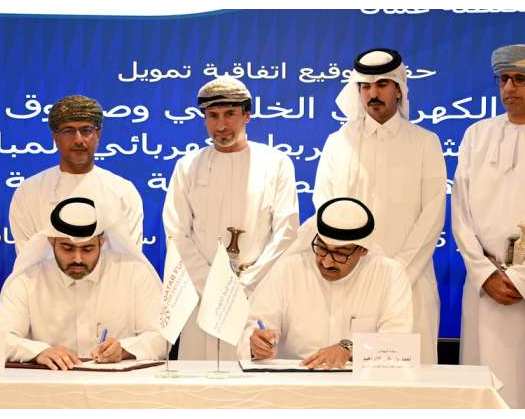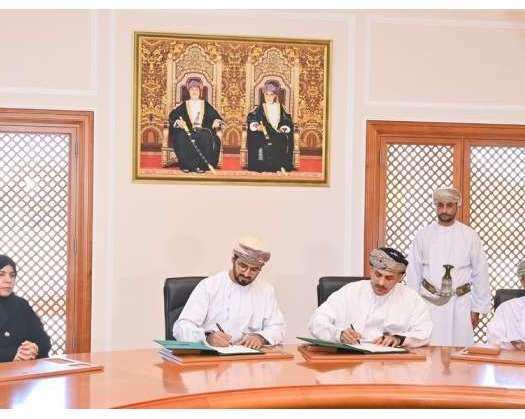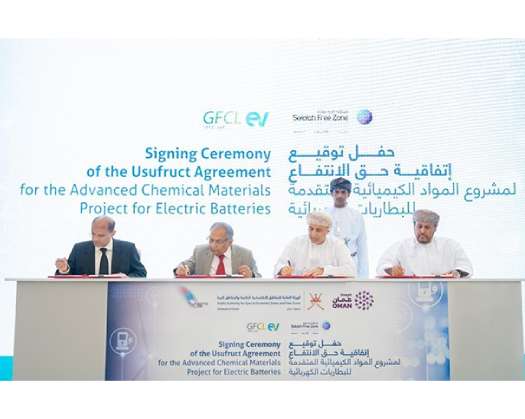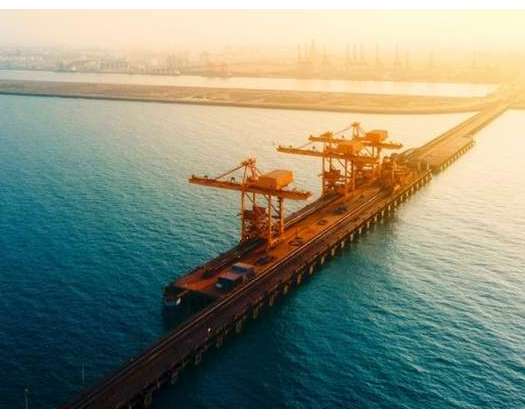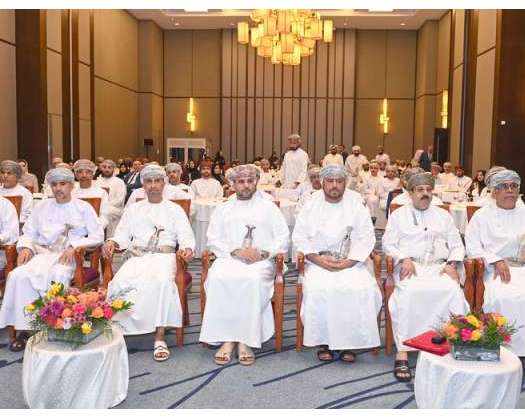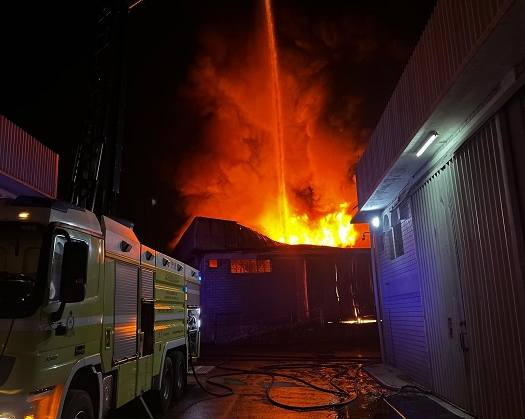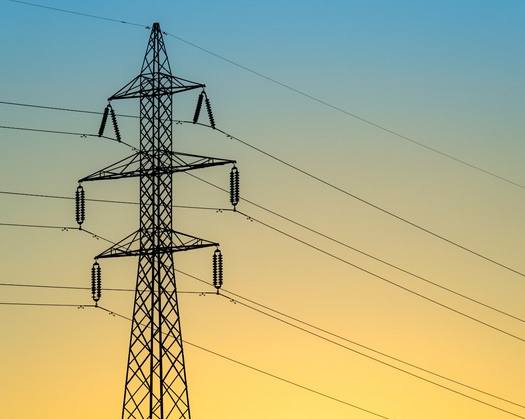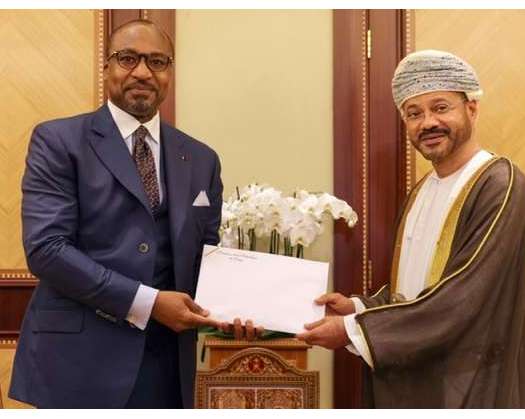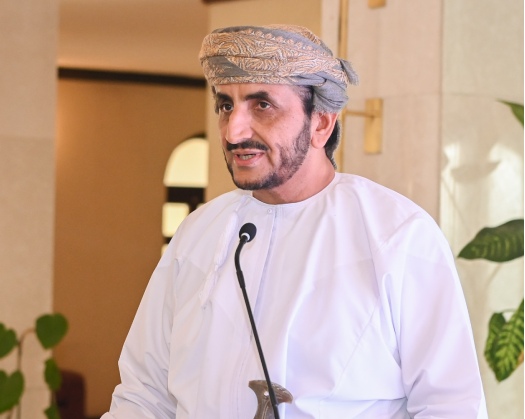Muscat: The Gulf Cooperation Council Interconnection Authority (GCCIA) and the Qatar Development Fund (QDF) have solidified their collaboration through a significant financing agreement amounting to $100 million.
The formalization took place during a ceremony on Thursday in Muscat, under the auspices of Eng. Salim Nassir Al Aufi, Minister of Energy and Minerals.
This agreement sets the stage for a groundbreaking direct grid connection project that will link the GCCIA network with the Sultanate of Oman, with a total project cost exceeding $700 million.
The agreement was signed by Eng. Ahmed Ali Al-Ebrahim, CEO of GCCIA, and Fahad Hamad Al Sulaiti, Director General of the Qatar Fund for Development.
The initiative includes the construction of two 400 kV overhead transmission lines that will connect the GCCIA's Al Sila station in the United Arab Emirates to a new Ibri station, which will be built in Oman by the GCCIA.
The total length of these transmission lines will reach 530 kilometers. Additionally, the project encompasses the establishment of two 400 kV substations, one located in Ibri and the other in Al Baynunah. These substations will feature state-of-the-art control, protection, and communication systems to ensure reliability, efficiency, and safety. A dynamic compensator station will also be integrated to enhance grid stability and increase transmission capacity. This interconnection project is expected to deliver a total transmission capacity of 1,700 MW, with a net transfer capacity of 1,200 MW.
This initiative represents a significant advancement in the integration of Gulf power grids, serving as a crucial strategic effort aimed at enhancing regional energy network connectivity while improving the reliability and sustainability of electricity systems in the area. It aligns with global priorities for energy infrastructure enhancement and the achievement of sustainable development objectives.
The project is set to deliver numerous benefits to both the Sultanate of Oman and the GCC countries. By unlocking hundreds of megawatts of additional generation capacity, it alleviates the need for expensive new power plant construction. Additionally, it will facilitate and increase electricity exchanges among the GCC nations and Oman, promoting greater flexibility and resilience in regional power systems.
Operational costs are expected to decrease significantly, as the interconnected network lowers the operational expenses for participating countries, resulting in considerable annual savings. Importantly, this initiative will play a vital role in reducing carbon emissions, thereby supporting global environmental conservation efforts.
Eng. Salim Nassir Al Aufi, Minister of Energy and Minerals, emphasized the strategic importance of this agreement, framing it as a fundamental component of Gulf integration policies within the energy sector. He pointed out the project's contribution to enhancing energy security and sustainability, highlighting its alignment with GCC initiatives aimed at developing a high-performing and reliable energy infrastructure.
He praised the Gulf Cooperation Council Interconnection Authority (GCCIA) for its pivotal role in advancing collaborative interconnection strategies. He emphasized that this initiative will not only enhance the resilience of regional power grids but also facilitate the establishment of fully integrated energy markets throughout the GCC. Additionally, he recognized the significant contribution of the Qatar Development Fund, underscoring the importance of such partnerships in financing essential energy projects that are vital for sustainable development and a more robust regional electricity framework.
In his remarks, Mohsen Hamad Al Hadrami, Undersecretary of the Ministry of Energy and Minerals and Chairman of the Board of Directors of the GCCIA, stated that the electrical interconnection project is a fundamental element of the critical infrastructure initiatives supported by the leaders of the GCC countries. Since its inception in 2009, the shared Gulf network has effectively linked the electricity systems of the GCC nations, with its primary objective being to guarantee a continuous energy supply for member states, achieving optimal levels of reliability, dependability, and efficiency.
The interconnection network established by the GCCIA has demonstrated its effectiveness by averting over 2,800 electrical outages in member states through the prompt transmission of necessary power across the network. Since it began operations, the network has served as a safeguard against power interruptions.
The GCCIA is dedicated to ensuring that the electrical interconnection network evolves in line with the increasing demands of power grids across all GCC member states. To achieve this, the Authority has made the expansion and modernization of electrical connections a top priority, both internally and externally among member states. This effort has led to the initiation of several significant network expansion projects, including a direct link with the Sultanate of Oman. These initiatives will enhance the capacity of the GCC-wide electrical interconnection network, thereby improving the member states' ability to handle power emergencies.
Al Hadhrami further underscored that this initiative represents a crucial advancement towards the integration of Gulf energy networks. Additionally, it is a key strategic effort aimed at reinforcing the interconnectedness of regional energy systems, improving the reliability and sustainability of electricity supply throughout the region, and addressing global trends that promote the development of energy infrastructure and the achievement of sustainable development objectives.
In parallel, Eng. Ahmed Al-Ebrahim, CEO of the GCCIA, pointed out the transformative impact of the project, indicating that construction is expected to commence in the latter half of 2025, with commissioning anticipated in the first half of 2027. He stressed that this project will significantly enhance grid stability, mitigating the adverse effects of major outages and ensuring a consistent power supply under various circumstances.
This initiative is designed not only to address current needs but also to prepare for future challenges, he stated. "It will enhance our networks' capacity to manage growing demands and facilitate future growth, while also integrating renewable energy sources such as solar and wind power, in line with the GCC's environmental objectives. Additionally, it will significantly boost energy exchange and trade among GCC countries, creating new opportunities for electricity trade, especially for the Sultanate with the Republic of Iraq."
He further underscored that this financing agreement reinforces the robust partnership between the Authority and the Fund as they collaboratively work to expand the electrical interconnection network, building on the groundwork established by the South Iraq connection project. Three significant projects are underway to strengthen connections with Kuwait, the UAE, and Oman, with a total investment surpassing $1 billion.
Al-Ebrahim acknowledged the fruitful collaboration between the Authority and the Fund, emphasizing its crucial role in financing vital infrastructure projects across the GCC, thus promoting the collective vision of sustainable development.
Fahad Hamad Al Sulaiti, General Manager of the Qatar Development Fund, remarked that the agreement exemplifies the Fund's dedication to fostering economic growth in Arab and developing nations through strategic financing and loans for development projects. This initiative, grounded in a mutual recognition of the importance of regional cooperation, acknowledges energy as a cornerstone of stability and socio-economic progress.
This project reflects the Qatar Development Fund's ongoing commitment to building regional partnerships and leading sustainable development initiatives, setting the stage for a more promising future.

